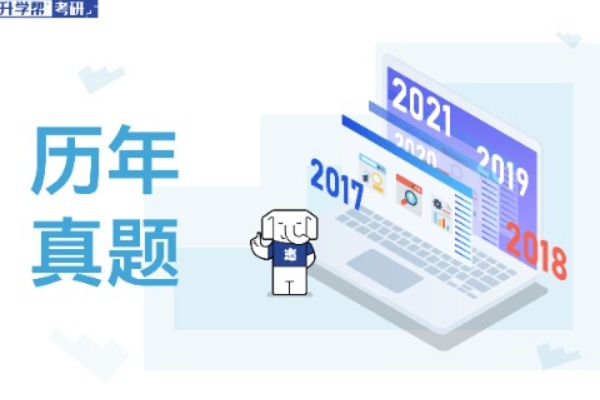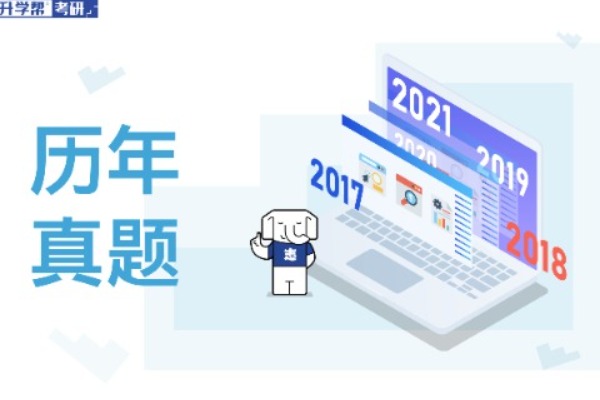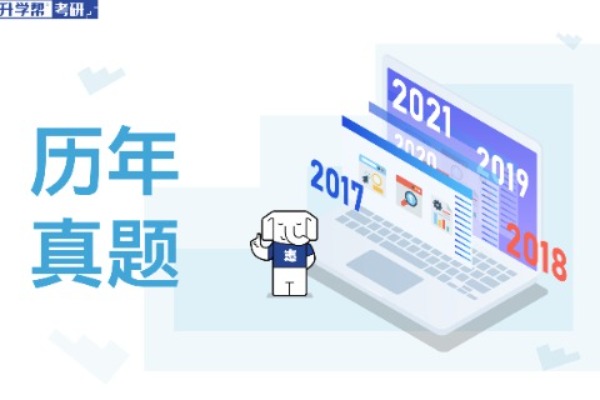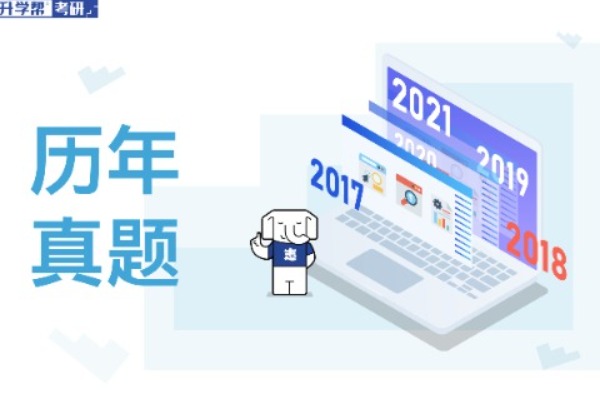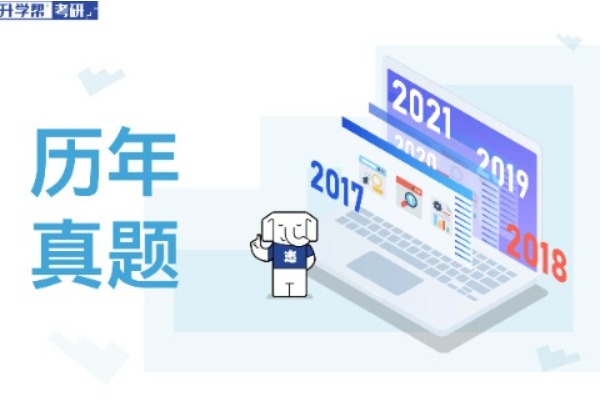《“好老师升学帮”客户端使用协议》
导言
欢迎您使用“好老师升学帮”客户端及相关服务!
“好老师升学帮”客户端及相关服务,系指好老师教育科技有限公司,通过合法拥有并运营的、标注名称为“好老师升学帮”客户端的客户端应用程序,向您提供的产品与服务,包括但不限于在线视频观看、习题练习、课程表、单词应用等核心功能以及其他功能。《“好老师升学帮”客户端使用协议》(以下简称“本协议”)是您与公司之间就用户注册、登录、使用(以下统称“使用”)“好老师升学帮”客户端及相关服务所订立的协议。
一、服务条款的确认与接纳
1.1 “好老师升学帮”客户端及相关服务,系的所有权和运营权归好老师教育科技有限公司所有。
1.2 用户在使用本应用的服务之前,应当仔细阅读并充分理解本协议的所有内容,并同意遵守本协议及所有应用规则后方可成为“好老师升学帮”用户,一旦用户注册成功,则用户与本应用之间自动形成协议关系,用户应当受本协议及所有应用规则的约束。用户在使用特殊的服务或产品时,应当同意接受相关协议后方能使用。
1.3 用户注册成功后,“好老师升学帮”客户端将给予每个用户一个用户账号及相应的密码,该用户账号和密码由用户负责保管并仅限本人使用;用户的个人资料发生变化时,应及时修改注册的个人资料;用户应当对以其用户账号进行的所有活动和事件负法律责任。
1.4 “好老师升学帮”客户端根据互联网的发展和中华人民共和国相关法律、法规的变化,不断完善服务质量并依此修改“好老师升学帮”客户端用户服务条款,本应用的通知、公告、声明或其它类似内容是本协议及应用规则的一部分。用户的权利以及义务的表述,均以最新的服务条款为准,用户在使用“好老师升学帮”客户端时应当及时关注。服务条款一旦发生变动,无需另行单独通知,在登录页面中提示。
二、服务内容
2.1 “好老师升学帮”客户端服务的具体内容由本应用根据实际功能提供,包括但不限于在线视频观看、习题练习、课程表、单词应用等核心功能以及其他功能相关服务。
2.2 除非本服务协议另有其它明示规定,“好老师升学帮”客户端所推出的新产品、新功能、新服务,均受到本服务协议之规范。
2.3 “好老师升学帮”客户端提供的部分网络服务为收费网络服务,用户使用收费网络服务需要向“好老师升学帮”客户端支付一定的费用。对于收费的网络服务,“好老师升学帮”客户端会在用户使用之前给予用户明确的提示,只有用户根据提示确认其愿意支付相关费用,用户才能使用本应用提供的收费网络服务。如用户拒绝支付相关费用,则“好老师升学帮”客户端有权不向用户提供收费网络服务。
2.4 “好老师升学帮”客户端提供的全部产品和服务,均是在“按现状”和“按现有”的基础上提供的,除此之外与相关服务有关的设备(如个人电脑、手机、及其他与接入互联网或移动网有关的装置)及所需费用(如为接入互联网而支付的电话费及上网费、为使用移动网而支付的手机费)均应由用户自行负担。
三、用户账号
3.1 用户可通过以下方式注册成为“好老师升学帮”客户端的正式用户:
(1) 经“好老师升学帮”客户端会员系统完成注册程序并通过身份认证的用户;
(2) 经“好老师升学帮”客户端批准的第三方“微信”“苹果”账号登录的的用户;
成为“好老师升学帮”客户端正式用户即获得本应用规定用户所应享有的一切权限;未经认证仅享有“好老师升学帮”客户端规定的部分会员权限。“好老师升学帮”客户端有权对会员的权限设计进行变更。
3.2 用户账号注册
(1) 使用“好老师升学帮”客户端会员系统注册的用户,需使用实名认证的手机号进行注册。
(2) 使用第三方“微信”“苹果”账号登录的用户,只能使用汉字、英文字母、数字、下划线及组合,禁止使用空格、各种符号和特殊字符。
(3) 用户在“好老师升学帮”客户端中注册的账号仅限本人使用,不得以任何形式赠予、借用、出租、转让、售卖或以其他方式许可他人使用该账号。
3.3 如发现用户账号中含有不雅文字或不恰当名称的,本应用保留取消其用户资格的权利。
(1) 不得以党和国家领导人或其他社会名人的真实姓名、字号、艺名、笔名注册;
(2) 不得以国家机构或其他机构的名称注册;
(3) 不得故意冒用他人信息为自己注册“好老师升学帮”客户端账号;不得未经他人合法授权以他人名义注册“好老师升学帮”客户端账号。
(4) 不得使用侮辱、诽谤、色情、政治等违反法律、道德及公序良俗的词语注册“好老师升学帮”客户端账号;不得侵犯他人合法权益的其他内容。
3.4 用户账号的所有权归本“好老师升学帮”客户端,用户仅享有使用权。3个月未使用的用户账号,“好老师升学帮”客户端保留收回的权利。
3.5 用户有义务保证密码和账号的安全,用户利用该密码和账号所进行的一切活动引起的任何损失或损害,由用户自行承担全部责任,本应用不承担任何责任。如用户发现账号遭到未授权的使用或发生其他任何安全问题,应立即修改账号密码并妥善保管,如有必要,请通知“好老师升学帮”客户端。因黑客行为或用户的保管疏忽导致账号非法使用,“好老师升学帮”客户端不承担任何责任。
四、使用规则
4.1 遵守中华人民共和国相关法律法规,包括但不限于《中华人民共和国计算机信息系统安全保护条例》、《计算机软件保护条例》、《最高人民法院关于审理涉及计算机网络著作权纠纷案件适用法律若干问题的解释(法释[2004]1号)》、《全国人大常委会关于维护互联网安全的决定》、《互联网电子公告服务管理规定》、《互联网新闻信息服务管理规定》、《互联网著作权行政保护办法》和《信息网络传播权保护条例》等有关计算机互联网规定和知识产权的法律和法规、实施办法。
4.2 用户对其自行发表、上传或传送的内容负全部责任,所有用户不得在本应用任何页面发布、转载、传送含有下列内容之一的信息,否则本应用(包括版主、管理员)有权自行处理并不通知用户:
(1) 违反宪法确定的基本原则的;
(2) 危害国家安全,泄漏国家机密,颠覆国家政权,破坏国家统一的;
(3) 损害国家荣誉和利益的;
(4) 煽动民族仇恨、民族歧视,破坏民族团结的;
(5) 破坏国家宗教政策,宣扬邪教和封建迷信的;
(6) 散布谣言,扰乱社会秩序,破坏社会稳定的;
(7) 散布淫秽、色情、赌博、暴力、恐怖或者教唆犯罪的;
(8) 侮辱或者诽谤他人,侵害他人合法权益的;
(9) 煽动非法集会、结社、游行、示威、聚众扰乱社会秩序的;
(10) 以非法民间组织名义活动的;
(11) 含有法律、行政法规禁止的其他内容的。
4.3 用户承诺对其发表或者上传于本应用的所有信息(即属于《中华人民共和国著作权法》规定的作品,包括但不限于文字、图片、音乐、电影、表演和录音录像制品和电脑程序等)均享有完整的知识产权,或者已经得到相关权利人的合法授权;如用户违反本条规定造成本应用被第三人索赔的,用户应全额补偿本应用一切费用(包括但不限于各种赔偿费、诉讼代理费及为此支出的其它合理费用);
4.4 当第三方认为用户发表或者上传于本应用的信息侵犯其权利,并根据《信息网络传播权保护条例》或者相关法律规定向本应用发送权利通知书时,用户同意本应用可以自行判断决定删除涉嫌侵权信息,除非用户提交书面证据材料排除侵权的可能性,本应用将不会自动恢复上述删除的信息;
(1) 不得为任何非法目的而使用网络服务系统;
(2) 遵守所有与网络服务有关的网络协议、规定和程序;
(3) 不得利用本应用服务进行任何可能对互联网的正常运转造成不利影响的行为;
(4) 不得利用本应用服务进行任何不利于本应用的行为。
4.5 如用户在使用网络服务时违反上述任何规定,本应用有权要求用户改正或直接采取一切必要的措施(包括但不限于删除用户发布的内容、暂停或终止用户使用网络服务的权利)以减轻用户不当行为而造成的影响。
4.6 注册用户名和昵称须执行如下规定:
(1) 不得使用党和国家领导人或其他知名人士的真实姓名、字号、艺名、笔名作为用户名和昵称。
(2) 不得使用国家机构或其他机构的名称作为用户名和昵称。
(3) 不得使用不文明、不健康,或带攻击性、侮辱性的用户名和昵称。
(4) 对于违反规定或产生不良后果的用户名和昵称,本公司有权删除而不必事先通知。
五、隐私保护
5.1 尊重用户个人隐私时“好老师升学帮”客户端的一项基本政策,“好老师升学帮”客户端不会私自公开或披露用户的个人信息,也不会私自更改用户的注册信息。但下列情况除外:
(1) 事先获得用户的明确授权;
(2) 根据有关的法律法规要求;
(3) 按照相关政府主管部门的要求;
(4) 为维护社会公众的利益。
5.2 本应用可能会与第三方合作向用户提供相关的网络服务,在此情况下,如该第三方同意承担与本应用同等的保护用户隐私的责任,则本应用有权将用户的注册资料提供给该第三方。
5.3 在不透露单个用户隐私资料的前提下,本应用有权对整个用户数据库进行分析并对用户数据库进行商业上的利用。
六、免责声明
6.1 “好老师升学帮”客户端对于任何包含、经由或连接、下载或从任何与有关本网络服务所获得的任何内容、信息或广告,不声明或保证其正确性或可靠性;并且对于用户经本服务上的广告、展示而购买、取得的任何产品、信息或资料,“好老师升学帮”客户端不负保证责任。用户自行负担使用本服务的风险。
6.2 除非另有明确的书面说明,“好老师升学帮”客户端提供给您的全部产品和服务,均是在“按现状”和“按现有”的基础上提供的。
6.3 “好老师升学帮”客户端对如下事项不做担保(包括但不限于):
(1) “好老师升学帮”客户端提供的网站、客户端软件虽然均已经过“好老师升学帮”客户端测试,但由于技术本身的局限性,“好老师升学帮”客户端不能保证其与其他软硬件、系统完全兼容。如果出现不兼容的情况,用户可将情况报告“好老师升学帮”客户端以获得技术支持。如果无法解决问题,用户可以选择卸载、停止使用“好老师升学帮”客户端服务。
(2)使用“好老师升学帮”客户端服务涉及到Internet服务,可能会受到各个环节不稳定因素的影响。因不可抗力、黑客攻击、系统不稳定、网络中断、用户关机、通信线路等原因,均可能造成“好老师升学帮”客户端服务中断或不能满足用户要求的情况。“好老师升学帮”客户端不保证“好老师升学帮”客户端服务适合用户的使用要求。
(3)由于“好老师升学帮”客户端提供的客户端可以通过网络途径下载、传播,因此对于从非“好老师升学帮”客户端指定官方站点下载、非“好老师升学帮”客户端指定途径获得的“好老师升学帮”客户端服务相关软件,“好老师升学帮”客户端无法保证其是否感染计算机病毒、是否隐藏有伪装的木马程序等黑客软件,也不承担用户由此遭受的一切直接或间接损害赔偿等法律责任。
(4) “好老师升学帮”客户端不做任何与“好老师升学帮”客户端服务、产品的安全性、可靠性、及时性和性能有关的担保。对于本应用向用户提供的下列产品或者服务的质量缺陷本身及其引发的任何损失,本应用无需承担任何责任:
(4-1) 本应用向用户免费提供的各项网络服务;
(4-2) 本应用向用户赠送的任何产品或者服务;
(4-3) 本应用向收费网络服务用户附赠的各种产品或者服务。
(5) “好老师升学帮”客户端不保证其提供的任何产品、服务或其他材料符合用户的期望。
6.4用户使用经由“好老师升学帮”客户端服务下载或取得的任何资料,其风险由用户自行负担,因该使用而导致用户电脑系统损坏或资料流失,用户应负完全责任。
6.5 用户应妥善保管自己的账号和密码,加强密码安全性,谨防账号泄露或被盗。因用户账号被泄露或被盗而造成的任何损失,“好老师升学帮”客户端不承担补偿责任。用户因电信和网通部门的通讯线路故障、网络或电脑故障、系统不稳定、不可抗力(如服务器宕机)等非“好老师升学帮”客户端原因造成账号、账号内财产等丢失、减少的,“好老师升学帮”客户端不承担补偿等责任。
6.6 用户理解并同意自主选择免费下载和使用“好老师升学帮”客户端服务,风险自负,包括但不限于用户使用“好老师升学帮”客户端服务过程中的行为,以及因使用“好老师升学帮”客户端服务产生的一切后果。如因下载或使用“好老师升学帮”客户端服务而对计算机系统造成的损坏或数据的丢失等,用户须自行承担全部责任。
6.7 当政府司法机关依照法定程序要求本客户端披露个人资料时,我们将根据执法单位之要求或为公共安全之目的提供个人资料。在此情况下之任何披露,本客户端均得免责。
6.8 本应用有权于任何时间暂时或永久修改或终止本服务(或其任何部分),而无论其通知与否,本应用对用户和任何第三人均无需承担任何责任。
因发生不可抗拒的事由,如政府行为、不可抗力,导致用户服务无法继续提供,“好老师升学帮”客户端将尽快通知您,但不承担由此对您造成的任何损失。
如用户违反被服务条款中的内容,“好老师升学帮”客户端有权取消用户的用户资格,并中止向其继续提供服务。
七、知识产权
7.1 受国际版权公约、中华人民共和国著作权法、专利法、及其他知识产权方面的法律法规的保护,“好老师升学帮”客户端服务及本服务所使用的软件、技术、商标、材料等所有知识产权归好老师教育科技有限公司所有和享有。“知识产权”包括在专利法、版权法、商标法、反不正当竞争法中等法律规定的任何和所有权利、任何和所有其它所有权以及其中的任何和所有应用、更新、扩展和恢复。
7.2 用户不得修改、改编、翻译“好老师升学帮”客户端服务所使用的软件、技术、材料等,或者创作与之相关的派生作品,不得通过反向工程、反编译、反汇编或其他类似行为获得其源代码,否则由此引起的一切法律后果由用户负责,好老师教育科技有限公司将依法追究违约方的法律责任。
7.3 用户不得恶意修改、复制、传播“好老师升学帮”客户端服务所使用的软件、技术、材料等。否则,用户自行承担因此而造成对他人的损害,或者造成对好老师教育科技有限公司形象损害,要承担相应的法律责任。
7.4 用户不得擅自删除、掩盖或更改“好老师升学帮”客户端的版权声明、商标或其它权利声明。“好老师升学帮”客户端平台所有设计图样以及其他图样、产品及服务名称,均为好老师教育科技有限公司及/或其关联公司所享有的商标、标识。任何人不得使用、复制或用作其他用途。
7.5 好老师教育科技有限公司对其自制内容和其他通过授权取得的独占内容享有完全知识产权,未经好老师教育科技有限公司许可,任何单位和个人不得私自转载、传播和提供观看服务或者有其他侵犯“好老师升学帮”客户端知识产权的行为。否则,好老师教育科技有限公司将追究侵权行为人的法律责任。
7.6 本应用所有内容仅代表作者本人的立场和观点,与本应用无关,由作者本人承担一切法律责任。
7.7 用户承诺,使用“好老师升学帮”客户端软件及相关服务时上传的文字、图片、视频、音频、链接等不侵犯任何第三方的知识产权、名誉权、姓名权、隐私权等权利及合法权益。否则,“好老师升学帮”客户端有权在收到权利方或相关方的通知后移除该涉嫌侵权内容。针对第三方提出的全部权利主张,用户应自行处理并承担可能因此产生的全部法律责任。如因用户的侵权行为导致好老师教育科技有限公司及其关联方、控制公司、继承公司遭受损失(包括但不限于经济、商誉等损失),用户应足额赔偿好老师教育科技有限公司及其关联方、控制公司、继承公司的全部损失。
7.8 用户通过“好老师升学帮”客户端及相关服务上传、发布或传输的内容(包括但不限于文字、图像、音频、视频、直播内容等各种形式的内容及其中包括的音乐、声音、台词、视觉设计、对话等所有组成部分),您授予好老师教育科技有限公司及其关联方、控制公司、继承公司一项全球范围内、免费、非独家、可再许可(通过多层次)的权利(包括但不限于复制权、翻译权、汇编权、信息网络传播权、改编权及制作衍生品、表演和展示的权利等),上述权利的使用范围包括但不限于在当前或其他网站、应用程序、产品或终端设备等使用。您在此确认并同意,好老师教育科技有限公司有权自行或许可第三方在与上述内容、“好老师升学帮”客户端软件及相关服务、“好老师升学帮”客户端或“好老师升学帮”客户端品牌有关的任何宣传、推广、广告、营销和/或研究中使用和以其他方式开发内容(全部或部分)。为避免疑义,您理解并同意,上述授予的权利包括使用、复制和展示您拥有或被许可使用并植入内容中的个人形象、肖像、姓名、商标、服务标志、品牌、名称、标识和公司标记(如有)以及任何其他品牌、营销或推广资产、物料、素材等的权利和许可。
7.9 使用本应用的任何内容均应注明来源于“好老师升学帮”及署上作者姓名,按法律规定需要支付稿酬的,应当通知本应用及作者及支付稿酬,并独立承担一切法律责任。
8.0 好老师教育科技有限公司所有和享有的知识产权,不因用户的任何使用行为而发生权利转移。恶意转载本应用内容的,本应用保留将其诉诸法律的权利。
八、附则
8.1 本协议的订立、执行和解释及争议的解决均应适用中华人民共和国法律。
8.2 如本协议中的任何条款无论因何种原因完全或部分无效或不具有执行力,本协议的其余条款仍应有效并且有约束力。
8.3 本协议解释权及修订权归好老师教育科技有限公司所有。
《“好老师升学帮”客户端隐私政策》
本政策仅适用于“好老师升学帮”客户端产品及服务。
本版本发布日期:2026年1月30日
本版本更新日期:2026年1月30日
概述
欢迎您使用“好老师升学帮”客户端产品及服务!
好老师教育科技有限公司(以下简称 “我们”)高度重视个人信息的保护,尊重并维护您的隐私权。为便于您了解,我们将通过本政策向您说明“好老师升学帮”客户端会如何收集、存储、保护、使用以及对外提供您的信息,并说明您享有的权利。希望您仔细阅读并充分理解本《用户隐私政策》,了解在使用我们的产品和服务时,我们如何收集、使用、存储、处理和保护这些信息,以及我们为您提供的了解、控制这些信息的方式,以便您更好地了解我们的产品和服务并作出适当地选择。若您使用或继续使用我们的产品与服务,即表示您同意本公司按本《用户隐私政策》的约定收集、使用、存储、处理与保护您的个人信息;如您为未成年人,应在取得您的父母或监护人同意后方可使用,或视为已获得其同意。
本《用户隐私政策》将帮助您了解以下内容:
1. 我们如何收集和使用您的信息
2. 我们如何存储您的信息
3. 自启动和关联启动说明
4. 我们如何使用Cookie以及同类技术
5. 第三方SDK目录
6. 我们可能向您发送的信息
7. 您如何了解和控制自己的用户信息
8. 我们如何保护您的个人信息
9. 本《用户隐私政策》的适用范围
10. 本《用户隐私政策》如何更新
11. 如何与我们联系
一、我们如何收集和使用您的信息
根据《信息安全技术个人信息安全规范》(GB/T35273–2020),个人信息是指以电子或者其他方式记录的能够单独或者与其他信息结合识别您的身份或者反映您的活动情况的各种信息。
我们根据合法、正当、必要的原则,仅收集实现产品功能所必要的信息。“好老师升学帮”客户端业务功能包括但不限于在线直点播视频观看、习题练习、课程表、单词应用、考勤打卡核心功能服务,以及第三方提供的服务。
“好老师升学帮”客户端各项功能需要收集和使用您的个人信息。
用户直接提供和我们自动采集的个人信息:
(一)注册、登录“好老师升学帮”客户端和相关服务涉及的个人信息:
1.注册账号
按国家有关法律法规,您在使用“好老师升学帮”客户端首页浏览、搜索时无需注册登录,但在使用交互功能时,您需要注册并登录“好老师升学帮”客户端账号。当您注册“好老师升学帮”客户端账号时,我们会收集您的手机号、短信验证码,收集这些信息是为了帮助您完成注册,并提后后续用户唯一身份认证、密码找回、验证码登录服务,并保障您账号的安全。若您不提供这类信息,您可能无法登录您的“好老师升学帮”客户端账号,无法正常使用我们的全部服务。
2. 登录账号
当您使用手机号验证码登录时,我们将向您的手机号码发送一条短信验证码,拒绝提供该信息仅会影响您使用该登录功能,但不会影响您使用我们的密码登录功能。
如您以第三方账号(微信、苹果账号)登录“好老师升学帮”客户端时,您将授权我们获取您在第三方平台注册的公开信息(昵称、头像、地区及性别),并在您同意授权之后将您的第三方账号与您的“好老师升学帮”客户端账号进行绑定,使您可以直接通过第三方账号登录并使用本产品及相关服务。您可以在关联登录页面选择是否授权或新建个人信息。我们和第三方将以去标识化的方式验证,这个过程中我们收集到的验证信息除前述头像、昵称、地区和性别外,无法识别特定个人身份的信息。我们需要您确认通过第三方账号登录前已经在第三方完成实名认证。如您不同意第三方账号登录,将无法使用第三方账号登录验证功能,但不影响您使用我们的其他服务。
3. 密码保护
当您使用手机号验证码进行密码修改时,我们将向您的手机号码发送一条短信验证码,拒绝提供该信息仅会影响您使用该密码修改功能,您将无法完成密码修改操作,但不会影响您使用我们的登录功能。
(二)使用“好老师升学帮”客户端业务功能涉及的个人信息:
1. 设备和日志信息
当您使用“好老师升学帮”客户端时,为保障您正常使用我们的服务,维护我们服务的正常运行,改进及优化我们的服务体验以及保障您的账号安全,我们会收集您的设备型号、操作系统、设备标识符(Android 如IMEI、Android ID、OAID、IMSI、GAID、ICCID、MEID、硬件序列号,iOS如IDFV、IDFA、网络设备硬件地址(MAC地址)、IP地址、软件版本号、网络运营商类型(如:中国移动、中国联通、中国电信)、网络类型和状态(如:3G、4G、5G、Wi-Fi)、网络质量数据、设备加速器(如重力感应设备)、系统日志、操作日志、服务日志信息(如您在搜索、查看文件、服务故障信息、访问时长、日期信息),这类信息是为提供服务必须在ios、Android客户端上收集的基础信息。
2. 当您使用“好老师升学帮”客户端时,我们将自动收集当前软件安装包信息,包括软件的版本号、浏览器类型、软件进程。为确保操作环境的安全或提供服务所需,我们会在您同意本《用户隐私政策》后通过您使用的终端设备系统获取终端设备已安装的移动应用和其他软件的信息。
3. 当您使用“好老师升学帮”客户端时,我们或我们的第三方合作伙伴会收集您在使用服务时主动提供的或因使用服务而产生的信息,用以向您提供更优质的服务并保障您的账号安全,可能涉及的服务如下:
(1)在您开启相关功能或使用服务时,如果您未登录账号,为了保障相关功能完整性,并向您提供更优质、更安全的使用体验,我们会通过设备标识符、网络设备硬件地址,保障信息分享和推送的基本服务功能。
(2)为保证您正常使用本客户端,维护我们和第三方服务以及SDK服务的正常运行,改善及优化您的服务体验并保障您的账号安全,需要验证您登录时使用设备的合法性和安全性以及身份的合法性,需要获取您的设备标识符、网络设备硬件地址、网络IP、本机号码、网络类型和手机品牌信息。
(3)当您使用本客户端时,我们或我们的第三方合作伙伴在获得您的自主选择同意后,会获取您的地理信息,用于为您推荐身边教学点地域化信息,您有权拒绝提供该权限或通过客户端设置关闭该权限服务,拒绝提供该权限仅会使您无法使用上述功能,但不影响您正常使用其它功能。
(4)当您使用本客户端时,我们或我们的第三方合作伙伴在获得您的自主选择同意后,会访问您的照片库,用于为您保存图片,您有权拒绝提供该权限或通过客户端设置关闭该权限服务,拒绝提供该权限仅会使您无法使用上述功能,但不影响您正常使用其它功能。
(5)当您使用本客户端时,我们或我们的第三方合作伙伴在获得您的自主选择同意后,会访问您的设备蓝牙,用于为您连接外部硬件设备,您有权拒绝提供该权限或通过客户端设置关闭该权限服务,拒绝提供该权限仅会使您无法使用上述功能,但不影响您正常使用其它功能。
(6)当您使用本客户端时,我们或我们的第三方合作伙伴在获得您的自主选择同意后,客户端需要访问您的相机权限,用于拍摄图片,上传评论、图片、头像,您有权拒绝提供该权限或通过客户端设置关闭该权限服务,拒绝提供该权限仅会使您无法使用上述功能,但不影响您正常使用其它功能。
(7)当您使用本客户端时,我们或我们的第三方合作伙伴会获取您的浏览记录,使您能够查看您的浏览历史。我们还会收集您在收藏功能中添加的信息,使您能够更快捷的访问您收藏的内容。您可以在客户端或客服渠道删除这些信息。
(8)当您需要使用讯息服务时,我们或我们的第三方合作伙伴在获得您的自主选择同意后,会通过客户端向您推送相关市场营销、产品信息、客户服务信息、系统通知 相关讯息,您有权拒绝提供该权限或通过客户端设置关闭该权限服务,拒绝提供该权限仅会使您无法使用上述功能,但不影响您正常使用其它功能。
(9) 当您使用直点播视频服务时,我们会收集您的播放记录、收藏、购买记录及观看进度,使您能够查看您的播放历史,为您生成您的学习报告。您的播放历史、收藏、购买信息会存储在我们的服务器。
(10)当您使用产品及/或服务的过程中,我们会向前述过程中收集的手机号码以短信、电话的方式,用于身份验证、用户消息告知、安全验证、用户使用体验调研、满意度调研、争议处理用途。
(11)当您使用协议签署和实名认证服务时,我们将通过应用内拍照/上传、第三方认证服务接口或线下验证等方式采集人脸生物特征数据(包括人脸照片、人脸比对特征模板、活体检测数据等)和身份证明文件信息(包括但不限于身份证正反面照片、证件号码、姓名、有效期及必要证件信息)。采集前我们将向您明确告知采集目的和使用方式,并征得您的同意(未成年人将取得监护人同意)。采集的信息仅限完成实名认证所必需的最小信息量,包括清晰的证件照片及用于比对的人脸图像或人脸特征数据。受委托的第三方在严格安全控制下对比您提交的人脸图像与证件信息,以完成身份核验,比对结果仅用于实名认证目的,不作为其他用途的直接依据。在达到保存期限或不再需要时,我们依照法规及本政策及时删除或匿名化处理。
3.当您使用“好老师升学帮”客户端时,我们会根据实际业务开展场景收集您主动提供的信息,可能涉及的服务如下:
(1) 您在个人资料编辑时提供的姓名、头像、性别、学校、地区、考试年份、报考城市、考试类型、真实姓名、电子邮件、QQ号、个人简介。这些资料将帮助我们更好地了解您的备考情况并为您提供更优质的辅导服务。拒绝提供该信息仅会使您无法使用上述功能,但不影响您正常使用其它功能。
(2) 您在使用观看视频、直播、试题纠错、使用反馈、课程分享、学习笔记时,我们会收集您通过前述服务所上传或下载的图片、文本信息,这类信息包括搜索关键字、发布和回复的评论、文字、标签。拒绝提供该信息仅会使您无法使用上述功能,但不影响您正常使用其它功能。
(3) 您在使用购买支付功能时,我们会收集您的姓名、收件人姓名、联系地址、联系方式、支付渠道、支付账号、支付网关号、订单信息、交易和消费金额信息。这些信息属于个人敏感信息,我们会根据您的支付信息获得支付状态。在获得您的明示同意后,我们将使用加密技术收集。拒绝提供该信息仅会使您无法使用上述功能,但不影响您正常使用其它功能。
(4) 您在使用客服、问题反馈功能时,您需要提供您的手机号码、QQ号码、微信号、电子邮箱或您向我们主动提供的联系方式,我们收集这些信息是为了核验您的用户身份信息、调查事实、帮助您解决问题,我们亦会保存您与我们的客服沟通信息和回复内容。拒绝提供该信息仅会使您无法使用上述功能,但不影响您正常使用其它功能。
为了让您有更好的体验、改善我们的服务或经您同意的其他用途,在符合相关法律法规的前提下,我们可能将去标识化的信息用于我们下述服务:
1.我们会根据您使用我们产品的频率和情况、故障信息、性能信息、账号异常、多端登录、流量异常、经常性退款请求 分析我们产品的运行情况及您的帐户安全,以确保服务的安全性,并优化我们的产品,提高我们的服务质量。
2.我们会根据以上在您使用产品或服务时获取的信息开展数据分析和研究,改进我们的内容布局和推广效果,为商业决策提供产品或服务支持。
3.应用前台、后台状态获取设备信息
我们会收集您的设备标识信息(MAC地址、DEVICE_id、IMEI、WiFi_SSID、WI-FI BSSID、设备序列号)和日志 软硬件及设备环境信息,用于信息推送、安全风控。
4.请您理解,我们向您提供的功能和服务是不断更新和发展的,如果某一功能或服务未在前述说明中且收集了您的个人信息,我们会通过页面提示、交互流程、网站公告的方式另行向您说明信息收集的内容、范围和目的,以征得您的同意。
关于个人信息和个人敏感的提示
上述的个人信息和个人敏感信息,我们会尽最大努力保护您的信息,若您不提供该信息,您可能无法正常使用我们的相关服务,但不影响您使用服务中的其他功能。若您主动提供您的个人信息和个人敏感信息,即表示您同意我们按本《隐私政策》所述目的和方式使用您的个人信息和个人敏感信息。
(三)应用列表获取权限说明:
我们在应用运行、安装或使用特定功能时请求访问以下权限或设备信息。权限按功能类别分组列出,说明用途及对用户体验的影响。除法律另有规定外,权限的获取以最小必要原则为准,且仅为实现明确功能或合规安全目的使用。
“好老师升学帮”客户端提供了微信公众号中直接打开App的功能,因此需要在进入App时检测用户是否已经安装微信客户端(触发获取应用列表权限),从而实现从微信直接打开App的快捷跳转功能,提升用户使用体验。
本部分将该操作需要获取的权限进行统一说明如下:
1. 应用下载权限
我们在您下载本应用时可能会请求或记录一定的信息与权限,以便为您提供下载引导、统计与安全检测服务。
下载过程中可能涉及的权限或信息包括但不限于:设备型号与操作系统版本、网络状态(Wi�Fi/移动数据)、下载来源与渠道标识(如应用商店、推广链接)、下载时间戳、IP 地址与国家/区域信息、下载包大小及散列值(用于完整性校验)、以及用于防欺诈与安全检测的设备指纹或唯一标识符。
我们仅在实现合法且明确目的所必需的范围内收集上述信息,不会用于与下载无关的其他商业目的。若您拒绝授予相应权限或限制相关信息收集,可能导致下载过程受限或无法完成安装。我们会按照适用法律对收集的信息采取合理的安全措施保存,并在本隐私政策或其他显著位置说明保存期限与访问方式。
2. 应用安装权限
在您安装本应用及其后续更新时,应用可能请求访问或启用若干设备权限以保障功能正常运行与用户体验。
典型安装及运行阶段可能涉及的权限包括但不限于:存储/文件访问(用于读取或保存用户产生的文件、缓存与配置)、相机、麦克风、定位(用于提供基于位置的服务)、通讯录/日历(用于同步联系人或日程提醒)、通知权限(用于推送重要消息)、电话(仅用于识别设备或在明确同意下提供通信功能)以及后台运行与自启动权限(用于接收推送或执行定期任务)。我们将在请求具体权限前,通过系统权限弹窗或应用内说明明确告知权限用途与必要性,并在可行情况下提供逐项授权与功能替代方案。
您有权选择拒绝或撤回授权;撤回后部分功能可能受限或不可用,但不会影响您对应用已存在数据的基本访问权。除为实现功能所必须的信息外,我们不会在未征得您明确同意的情况下访问或共享敏感个人数据。所有收集的数据将仅用于声明的目的,并按本隐私政策中所述的存储期限与安全保护措施处理。
3. 相机权限
用于您使用摄像头进行扫码、拍摄,用于实现登录、签到、图片评论、上传作业/资料/笔记、直播互动、问题反馈功能。
4.相册权限
使您可以实现将您设备中的照片、图片或视频的取用与上传、使用相册中的图片上传头像、在聊天过程中发送相册图片。
5.麦克风权限
用于您实现口语练习、语音回复、语音评论、直播互动功能,在这些功能中我们会收集您的录音内容以识别您的具体需求。
6. 蓝牙权限
用于实现智慧笔与客户端的配对连接、实时获取书写轨迹以进行笔迹识别、同步作业/笔记、支持教师批改与学习分析、以及提升书写识别算法与用户体验。
7.网络权限
用于您使用在线视频资源、单词资源、课件资源、智慧教材、在线习题集、作业/考试、搜索/浏览资讯,在这些功能中我们会使用移动数据网络或WiFi网络以获取在线资源数据。
8.存储权限说明
用于您下载文本、保存图片到相册、压缩/裁剪头像、视频缓存文件,这是为了使您进行个人信息设置、更方便查询课程文件,体验我们的课程服务或为您提供课程离线观看功能。
二、我们如何存储您的信息
(一)存储地点:
我们依照法律法规的规定,在中华人民共和国境内收集和产生的个人信息,将存储在中华人民共和国境内。
(二)存储期限:
我们仅在为提供“好老师升学帮”客户端产品和服务之目的所必需的期间内保存您的个人信息,在您未撤回、删除或未注销账号期间,我们会保留相关信息。超出必要期限后,我们将对您的个人信息进行删除或匿名化处理,但法律法规另有规定的除外。在下列情况下,我们有可能在遵守法律法规规定的前提下,更改个人信息的存储时间:
(1) 为遵守相关法律法规的规定;
(2) 为遵守法院判决、裁定或其他法律程序的规定;
(3) 为遵守相关政府机关或法定授权组织的要求;
(4) 为执行相关服务协议或本《隐私政策》、维护社会公共利益,为保护们的客户、我们或我们的关联公司、用户或雇员的人身财产安全或合法权益所合理必需的用途。
(5) 其他法律法规规定或您另行授权同意的情形。
(三)存储方式:
我们会通过安全技术保护措施存储您的信息,包括本地存储、数据缓存、数据库和服务器日志。
当我们的产品或服务发生停止运营的情形时,我们将采取合适的方式(例如推送通知、站内信、公告)通知您,并在合理的期限内删除或匿名化处理您的个人信息。
三、自启动和关联启动说明
为确保本应用处于关闭或后台运行状态下可正常接收到客户端推送的广播信息,本应用须使用(自启动)能力,将存在一定频率通过系统发送广播唤醒本应用自启动或关联启动行为,是因实现功能及服务所必要的。
四、我们如何使用Cookie以及同类技术
Cookie 和同类技术是互联网中普遍使用的技术。当您使用“好老师升学帮”客户端时,我们可能会使用相关技术收集您的信息。Cookie主要的功能是便于您使用网站产品和服务,以及帮助网站统计独立访客数量 。运用Cookie技术,我们能够为您提供更加周到的优质服务,并允许您设定您特定的服务选项。我们使用 Cookie和同类技术主要为了实现以下功能或服务:
1.产品与服务的安全、高效运转:我们可能会设置认证与保障安全性的 Cookie 或匿名标识符,使我们确认您是否安全登录服务,或者是否遇到盗用、欺诈及其他不法行为。这些技术还会帮助我们改进服务效率,提升登录和响应速度。
2.您获得更轻松的访问体验:使用此类技术可以帮助您省去重复您填写个人信息、输入搜索内容的步骤和流程(例如:表单填写)。
您可以通过浏览器设置拒绝或管理Cookie以及同类技术的使用。但请注意,如果停用Cookie,您可能无法享受最佳的服务体验,某些服务也可能无法正常使用。
五、第三方SDK目录
我们会对接入第三方SDK进行严格检测,并对您及时公开说明接入SDK的最新情况。目前,我们使用的第三方信息共享清单如下:
1. SDK名称:MobTech ShareSDK
第三方名称:广州掌淘网络科技有限公司
使用目的:社交分享,第三方登录
收集个人信息的类型:系统运行信息、网络状态信息、iOS广告标识符(IDFA)、国际移动设备识别码(IMEI)、匿名设备标识符(OAID)、国际移动用户识别码(IMSI)、应用列表信息、基站信息、社交平台OpenID、地理位置
官方链接:https://www.mob.com/
隐私政策:www.mob.com/about/policy
2. SDK名称:极光推送 SDK
第三方名称:深圳市和讯华谷信息技术有限公司
使用目的:消息推送服务
收集个人信息类型:
设备参数及系统信息(设备类型、设备型号、系统版本、及相关硬件信息):用于识别用户的设备类型、设备型号、系统版本 ,确保消息准确下发;
设备标识符(IMEI、IDFA、Android ID、GAID、 MAC、OAID、VAID、AAID、IMSI、MEID、UAID、硬件序列号信息、ICCID、SIM信息):用于识别唯一用户,保证推送的精准送达及推送信息的准确统计;
网络信息(IP 地址、WiFi 信息、基站信息、DNS地址、DHCP地址、SSID、BSSID)与位置信息(经纬度):用于优化SDK与极光服务器的网络连接请求,保证服务的稳定性和连续性,同时实现区域推送功能;
应用列表信息(应用崩溃信息、通知开关状态、APP 应用列表及活跃状态、APP 应用页面信息、APP 功能事件相关信息):当一个设备有多个 APP 的推送链路同时活跃时,我们采用合并链路技术,随机合并成一条链路,以达到为用户节省电省流量的目的。
数据处理方式:通过去标识化、加密传输方式
官网链接:https://www.jiguang.cn/push
隐私政策:https://www.jiguang.cn/license/privacy
3. SDK名称:华为推送SDK
第三方名称:华为软件技术有限公司
使用目的:消息推送服务
收集个人信息类型:应用信息(应用基本信息)、设备信息(AAID、设备标识符、设备硬件信息、系统基本信息、系统设置)
官方链接:https://developer.huawei.com/consumer/cn/hms/huawei-pushkit
隐私政策:https://developer.huawei.com/consumer/cn/doc/app/50129-07#h3-1692755453563-0
4. SDK名称:华为联运应用SDK
第三方名称:华为软件技术有限公司
使用目的:华为手机用户的APP使用分析
收集个人信息类型:应用信息(应用基本信息)、设备信息(AAID、设备标识符、设备硬件信息、系统基本信息、系统设置)
官方链接:https://developer.huawei.com/consumer/cn/appgallery/joint-operation
隐私政策:https://developer.huawei.com/consumer/cn/doc/app/50129-07#h3-1692755453563-0
5. SDK名称:OPPO 推送 SDK
第三方名称:广东欢太科技有限公司
使用目的:消息推送服务
收集个人信息类型:设备标识符(如 IMEI、ICCID、IMSI、Android ID、GAID)、应用信息(如应用包名、版本号和运行状态)、网络信息(如 IP 或域名连接结果,当前网络类型)
使用目的:推送消息
数据处理方式:通过加密传输和处理的安全处理方式
官网链接:https://open.oppomobile.com/new/introduction?page_name=oppopush
隐私政策:https://open.oppomobile.com/wiki/doc#id=10288
6. SDK名称:vivo 推送 SDK
第三方名称:维沃移动通信有限公司
使用目的:消息推送服务
收集个人信息类型:设备及应用信息、日志信息、位置信息
数据处理方式:通过去标识化、加密传输方式
官网链接:https://dev.vivo.com.cn/promote/pushNews
隐私政策:https://www.vivo.com.cn/about-vivo/privacy-policy
7. SDK名称:小米推送SDK
第三方名称:小米科技有限责任公司
使用目的:消息推送服务
收集个人信息类型:设备标识信息及应用信息、设备相关信息(如设备厂商、设备型号、设备内存、操作系统版本、小米推送SDK版本、设备归属地(国家或地区)、SIM卡运营商名称、当前网络类型)
官网链接:https://dev.mi.com/platform
隐私政策:https://dev.mi.com/console/doc/detail?pld=1822
8. SDK名称:荣耀推送 SDK
第三方名称:荣耀终端有限公司
使用目的:消息推送服务
涉及的个人信息类型:应用匿名标识 (AAID),应用 Token
数据处理方式:通过去标识化、加密传输方式
官网链接:https://developer.hihonor.com/cn/promoteService
隐私政策:https://www.hihonor.com/cn/privacy/privacy-policy/
9. SDK名称:友盟+SDK
第三方名称:友盟同欣(北京)科技有限公司、北京锐讯灵通科技有限公司
使用目的:友盟APP使用数据统计
收集个人信息类型:设备信息(Android ID/IDFA/OAID/OpenUDID/GUID;可选-
IMEI/IMSI/ICCID)、网络信息
官方链接:https://www.umeng.com/
隐私政策:https://www.umeng.com/page/policy
10. SDK名称:支付宝SDK
第三方名称:支付宝(中国)网络技术有限公司
使用目的:解决移动端支付场景
收集个人信息类型:IMEI、IMSI、MAC 地址、设备序列号、硬件序列号、SIM卡序列号、ICCID;Android ID、OAID、SSID、BSSID;系统设置、系统属性、设备型号、设备品牌、操作系统;IP 地址、网络类型、运营商信息、Wi-Fi 状态、Wi-Fi 参数、Wi-Fi 列表;软件安装列表
官方链接:https://open.alipay.com/
隐私政策:https://opendocs.alipay.com/open/54/01g6q
11. SDK名称:微信SDK
第三方名称:深圳市腾讯计算机系统有限公司
使用目的:使用微信快速登录,分享内容至第三方平台,微信支付
收集个人信息类型:IMEI、IMSI、MAC 地址、设备序列号、硬件序列号、SIM卡序列号、ICCID;Android ID、OAID、SSID、BSSID;系统设置、系统属性、设备型号、设备品牌、操作系统;IP 地址、网络类型、运营商信息、Wi-Fi 状态、Wi-Fi 参数、Wi-Fi 列表;软件安装列表
官方链接: https://open.weixin.qq.com
隐私政策:https://support.weixin.qq.com/cgi-bin/mmsupportacctnodeweb-bin/pages/RYiYJkLOrQwu0nb8
12、SDK名称:声网(Agora)SDK
第三方名称:上海声网科技有限公司
使用目的:提供移动端直播观看服务
收集个人数据类型:查看WLAN连接 、使用蓝牙、获取粗略位置、 获取精确位置、摄像头、读取外置存储卡、读取手机状态和身份、录音、写入外部存储卡、 检索正在运行的应用、后台访问地理位置
官方链接:https://www.shengwang.cn/
隐私政策:https://www.agora.io/cn/privacy-policy
13、SDK名称:腾讯bugly
第三方名称:腾讯科技有限公司
使用目的:为提高服务稳定性,便于服务崩溃后快速准确定位存在问题
收集个人信息类型:Crash环境(Crash信息及线程堆栈,ROM/RAM/SD卡容量、网络/语言状态App信息:包名、版本、所属进程名)、设备信息、设备厂商、设备名称、操作系统版本、运营商代码,App运行状态,闪退、卡顿、网络信息、日志信息
官方链接:http://bugly.qq.com/
隐私政策:http://bugly.qq.com/v2/contract
14、SDK名称:com.tencent.smtt(TBS腾讯浏览服务;腾讯浏览服务;腾讯X5浏览器)
第三方名称:深圳市腾讯计算机系统有限公司
使用目的:提供内置浏览器服务
收集个人信息类型:设备信息、应用信息、Wi-Fi状态和参数、位置信息、附近的Wi-Fi、CellID
官方链接:https://x5.tencent.com
隐私政策:https://x5.tencent.com/docs/privacy.html
15、SDK名称:实时音视频-腾讯云实时互动-教育版 SDK
第三方名称:腾讯云计算(北京)有限责任公司
使用目的:提供在线直播和回放观看服务
收集的个人信息:AndroidID、设备信息(设备型号、操作系统、CPU 类型)、应用信息(宿主应用包名,版本号)、IP 地址、精确位置信息、附近的 Wi-Fi、CellID、OAID、BSSID、SSID、剪切板、地理位置、传感器权限、已安装的支持文件打开的应用列表、网络权限、获取网络权限、获取 Wi-Fi 状态权限、摄像头权限、麦克风录音权限、蓝牙权限、外部存储读取权限、外部存储写入权限、媒体图像文件读取权限、前台服务权限、启动前台服务权限、启动媒体投影权限。
其中,精确位置信息、附近的 Wi-Fi、CellID、OAID、BSSID、SSID、剪切板、地理位置、传感器权限、已安装的支持文件打开的应用列表、麦克风权限、摄像头权限,均为基于用户需要、用户主动行为才会获取的信息或访问的权限。
官网链接:https://cloud.tencent.com/product/lcic
隐私政策:https://cloud.tencent.com/document/product/1639/79924
六. 我们可能向您发送的信息
(一)信息推送
您在使用我们的产品和服务时,我们可能向您发送提醒、声音和图标标记,以及电子邮件、应用内的推送通知。您可以在设备的设置相关页面选择取消。
(二)与产品和服务有关的公告
我们可能在必要时向您发出与产品和服务有关的公告。您可能无法取消这些与产品和服务有关、性质不属于广告的公告。
七、您如何了解和控制自己的用户信息
1.我们将尽一切可能采取适当的技术手段,保证您可以了解、更新和更正自己的注册信息或使用我们的服务时提供的用户信息。在了解、更新、更正和删除前述信息时,我们可能会要求您进行身份验证,以保障帐户安全。一般情况下,您可随时修改自己提交的信息,但出于安全性和身份识别的考虑,您可能无法修改注册时提供的某些初始注册信息、验证信息及认证信息。
2.如您不希望您的部分信息被我们获取,您可以通过关闭设备权限的方式停止我们获得您的个人信息。您开启下述权限即代表您授权我们可以收集和使用该权限相应的个人信息来为您提供对应服务,您关闭前述权限即代表您取消了授权,我们将不再基于对应权限继续收集和使用相关个人信息,也无法为您提供该权限所对应的服务,但不影响您使用我们的其他服务。但是,您关闭权限的决定不会影响我们此前基于您的授权所进行的信息收集及使用:
(1) 当您使用头像设置功能,我们会向您的设备发出访问摄像头、相机、照片权限请求。您可以在设备系统设置中关闭摄像头、相机、照片权限。
3. 在您使用好老师升学帮期间,为了让您更便捷地控制您的个人信息,我们在产品和服务设计中为您提供了相应的操作设置,您可参考下面的指引进行操作。
(1) 访问个人信息:
您可以在【我的】-【我的信息】进行查询、访问、更正您的头像、姓名、考试地区、就读院校、紧急联系人 。
4.账户注销:若您不需要继续使用我们的服务,您可以通过【我的】-【账户安全】-【注销账号】功能来进行注销,点击提交注销申请后,系统会在一周内注销您账号的相关信息,包括用户基础信息、学习记录、已购买的课程 。
八、我们如何保护您的个人信息
(一)我们高度重视个人信息保护,已采取必要的技术和管理措施来保障您的信息安全。通过业界认可的防护手段,我们努力避免数据被未经授权访问、公开、使用、篡改、损毁或丢失。包括但不限于:对敏感数据进行加密处理;采用成熟的防御机制抵御恶意攻击;实施严格的访问控制,仅允许经授权的人员在必要范围内接触数据;定期开展安全审计以评估并改进防护效果;建立完善的数据管理制度与操作流程;并对员工开展安全与隐私保护培训,提升内部安全意识与合规水平。
(二)为在合理范围内维护您的信息安全,我们部署了多层次的防护措施,力求减少未经授权访问、泄露、误用或损坏 风险。例如,采用加密传输协议(如 SSL/TLS)和数据脱敏、匿名化 技术手段;建立专门的信息安全管理体系和审批流程;严格限定可访问数据的岗位人员并签署保密承诺;对相关操作实施必要的审查和监控。
(三)互联网并非绝对安全,部分通信渠道(例如普通电子邮件与未加密的即时通讯)可能存在风险。为降低个人信息外泄的可能性,建议您尽量避免通过这些渠道提交敏感信息,并设置较强密码以保护您的账号安全。
(四)尽管我们已尽力构建完善的物理、技术与管理防护措施,但无法在任何情况下对信息安全提供绝对保证。如因不可控因素导致信息被未经授权访问、披露、篡改或损毁,给您造成损失的,我们将在法律规定范围内承担相应责任,并及时配合处理相关问题。
(五)我们已制定信息安全事件的应急预案,并将在发现用户信息安全事件后迅速启动响应流程,采取必要措施遏制事态扩大。发生信息泄露或丢失时,我们会按法律法规要求及时向受影响的用户说明事件情况、可能影响与风险、已采取或拟采取的处置措施、可供您采取的防范建议以及补救方案。若无法逐一通知,我们将通过公告 合理方式向公众说明事件进展。
同时,我们还将按照监管部门要求,主动上报个人信息安全事件的处置情况。
九、本《用户隐私政策》的适用范围
我们的所有产品和服务均适用本《用户隐私政策》。但某些产品或服务可能会有其特定的隐私政策适用条款,该特定隐私政策适用条款更具体地说明我们在该产品或服务中如何处理您的个人信息。除非有特殊说明,若本《用户隐私政策》与该特定产品或服务的隐私政策适用条款有不一致之处,请以该特定隐私政策适用条款为准。
请您注意,本《用户隐私政策》不适用由其他公司或个人提供的产品或服务。如果您使用第三方的产品或服务,须受该第三方的隐私政策而非本《用户隐私政策》)约束,您需要仔细阅读其政策内容。
本《用户隐私政策》为《用户服务协议》及相关协议的重要组成部分,本《用户隐私政策》内的名词定义参照《用户服务协议》,适用于“好老师升学帮”客户端相关服务。
十、本《用户隐私政策》如何更新
我们的隐私政策可能变更。
未经您明确同意,我们不会削减您按照本隐私政策所应享有的权利。我们会在本页面上发布对本隐私政策所做的任何变更。若您不同意该变更可以停止使用“好老师升学帮”客户端产品和服务,若您继续使用我们的产品和/或服务,即表示您同意受修订后的本隐私政策的约束。
对于重大变更,我们还会提供更为显著的通知(包括对于某些服务,我们还会通过电子邮件发送通知,说明个人信息保护政策的具体变更内容。)
本政策所指的重大变更包括但不限于:
1.我们的服务模式发生重大变化。如处理个人信息的目的、处理的个人信息类型、个人信息的使用方式 ;
2.我们在所有权结构、组织架构发生重大变化。如业务调整、破产并购引起的所有者变更 ;
3.个人信息共享、转让或公开披露的主要对象发生变化;
4.您参与个人信息处理方面的权利及其行使方式发生重大变化;
5.我们负责处理个人信息安全的责任部门、联络方式及投诉渠道发生变化时;
无论何种方式,若您继续使用我们的服务,即表示同意受更新后的《用户隐私政策》约束。
更新后的《用户隐私政策》将以更新日期为生效日期,并取代之前的《用户隐私政策》。
十一、如何与我们联系
我们已经成立了相关部门并配有个人信息保护专门负责人员,如您对本政策存在任何疑问,或对于您的个人信息处理存在任何投诉、意见,您可以通过书面函件,进行详细地描述,最后留下您的联系方式,管理人员会根据您的反馈与建议,一般情况下,我们将在验证您的用户身份后来全面保障您的隐私安全问题。
我们的联系地址:重庆市南岸区茶园新区恒大同景国际S组团A3 好老师收
电话:13022832897
邮编:400000
 抖音
抖音
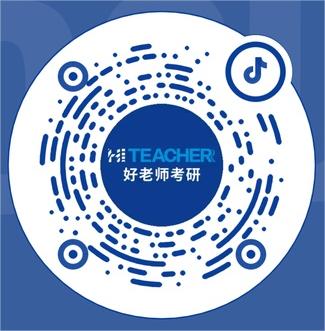
 快手
快手
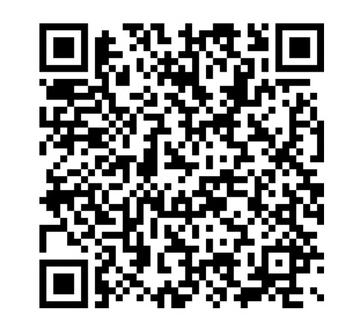
 微信号
微信号

 咨询点
咨询点
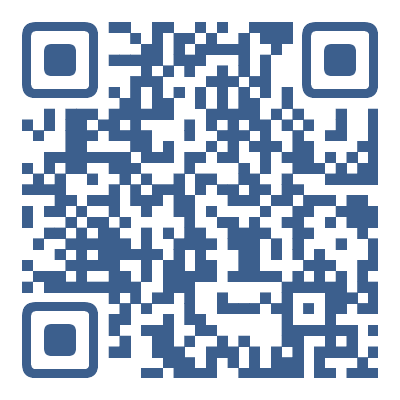
 400-023-1785
400-023-1785 












